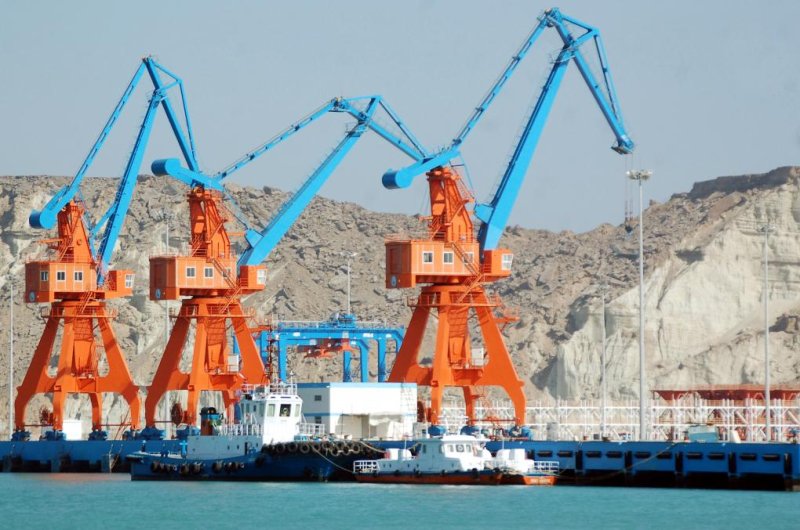China and Pakistan agreed to build a railroad connecting China’s western region of Xinjiang to Gwadar, a port city in Pakistan (pictured) in 2015. File Photo by Nadeem Khawer/EPA
May 13 (UPI) -- Pakistan is to receive a bailout from the International Monetary Fund as it increasingly allows China to finance more of its infrastructure projects.
After concluding a visit to the country last week, IMF delegate Ernesto Ramirez Rigo said in a statement on Sunday a $6 billion bailout will be provided to Pakistan in the face of low growth and high levels of debt.
"The Pakistani authorities and the IMF team have reached a staff level agreement on economic policies that could be supported by a 39-month Extended Fund Arrangement for about $6 billion," Rigo said.
Pakistan is also facing a difficult economic environment of high inflation, the IMF said. The international agency added the bailout will reduce Pakistan's debt through tax policy.
China has extended $62 billion to Islamabad as part of the China-Pakistan Economic Corridor. In 2015, the two countries agreed to build a railroad connecting China's western region of Xinjiang to Gwadar, a port city in Pakistan.
As part of projects related to the Economic Corridor, Pakistan borrowed $40 billion from China, but the decision came at a time when Pakistan's economy was struggling with high inflation, a declining rupee and falling foreign exchange reserves.
Pakistan has previously turned to the IMF for funds. In 2013, Prime Minister Nawaz Sharif agreed to an IMF loan of $6.6 billion, in exchange for pledges to build a more equitable tax base and private state-owned enterprises, Bloomberg reported on Monday.
The country has also received loans from the United Arab Emirates and Saudi Arabia ranging from $6 billion to $6.2 billion.
Pakistan's economy initially recovered following the 2013 IMF bailout, but billions of dollars in Chinese infrastructure investment in 2017 pushed up import demand in the country, triggering a fall in foreign reserves and a decline in the nation's currency.
China has urged countries to join its Belt and Road initiative amid an ongoing trade dispute with the United States.
Chinese paper People's Daily warned Washington in an editorial on Monday the Trump administration's plan to impose additional tariffs is "pushing China to its limit."
U.S. President Donald Trump and Chinese President Xi Jinping are likely to meet next month at the G20 summit.















